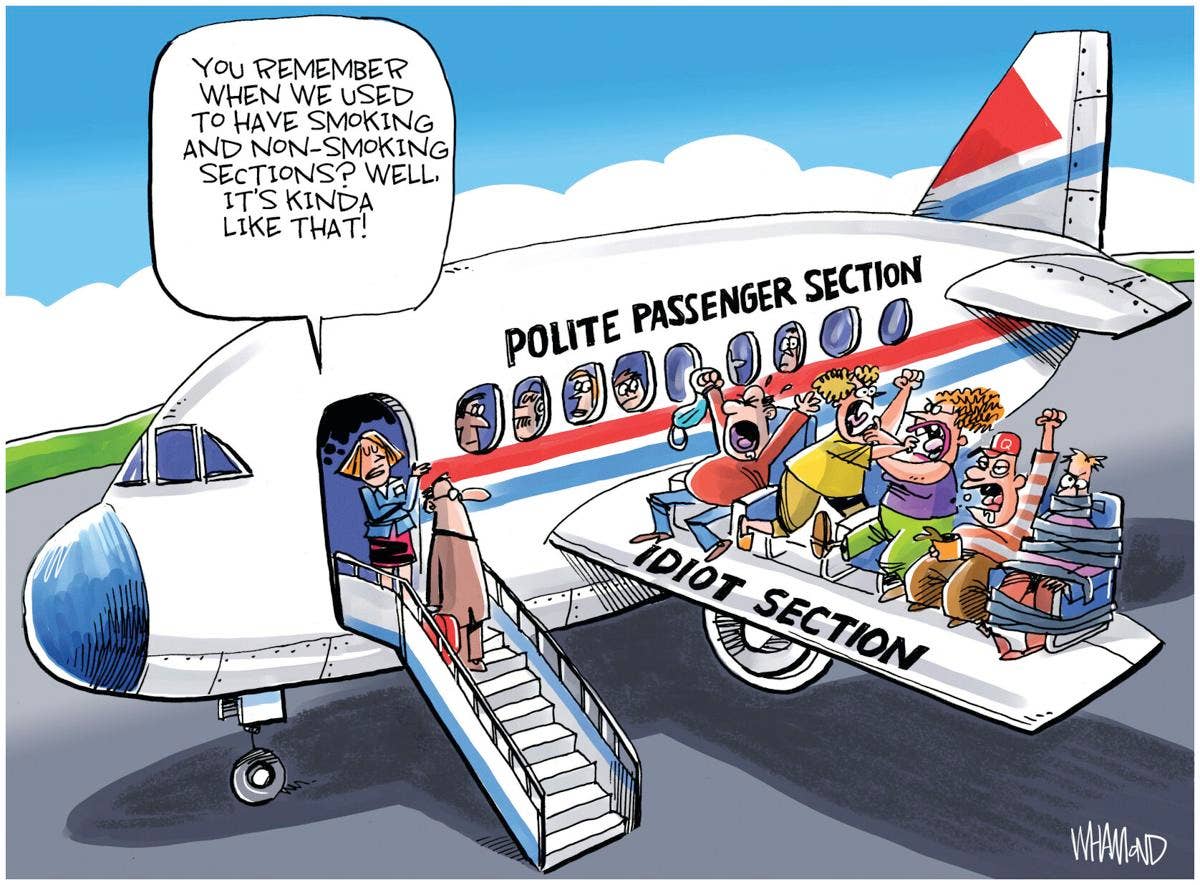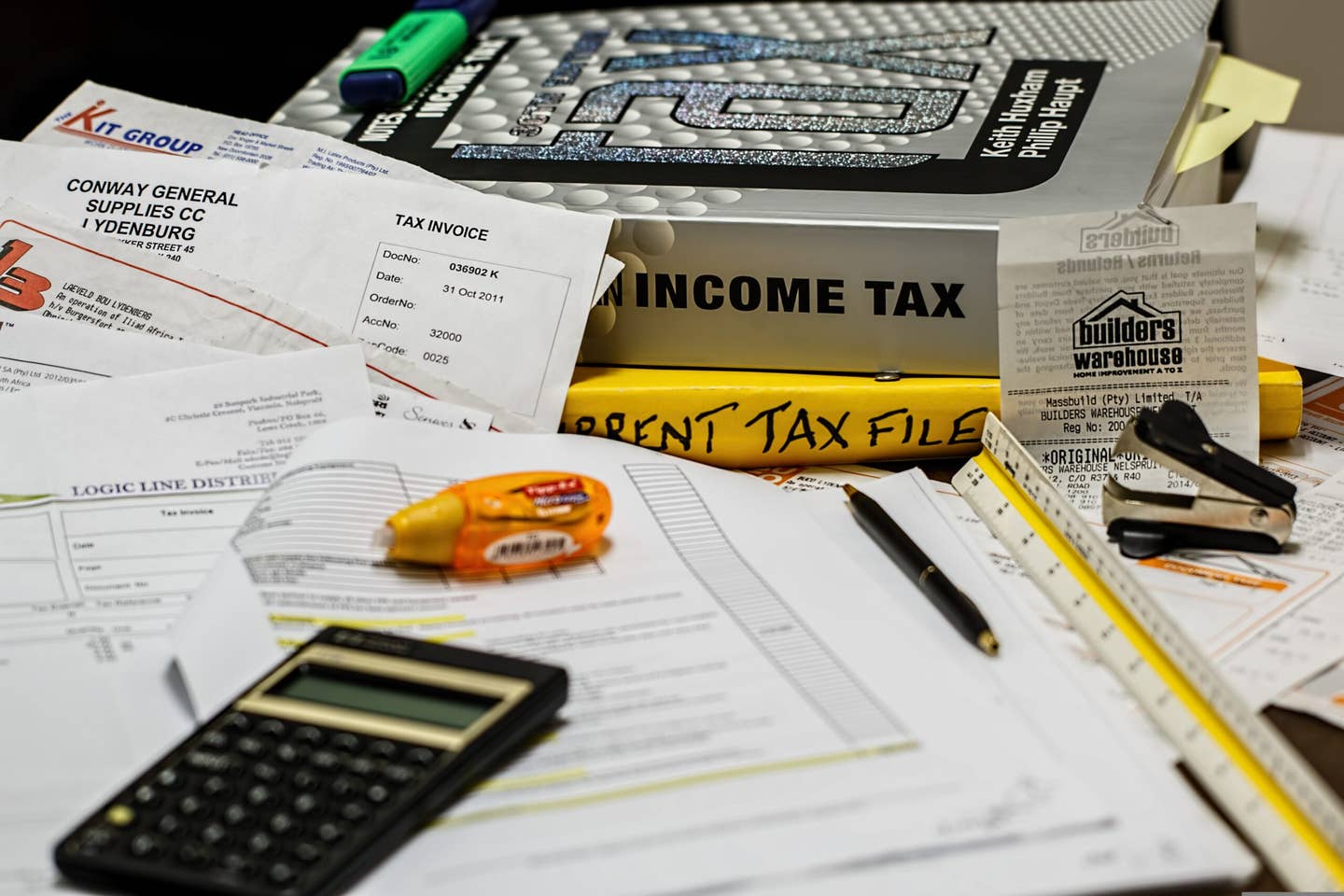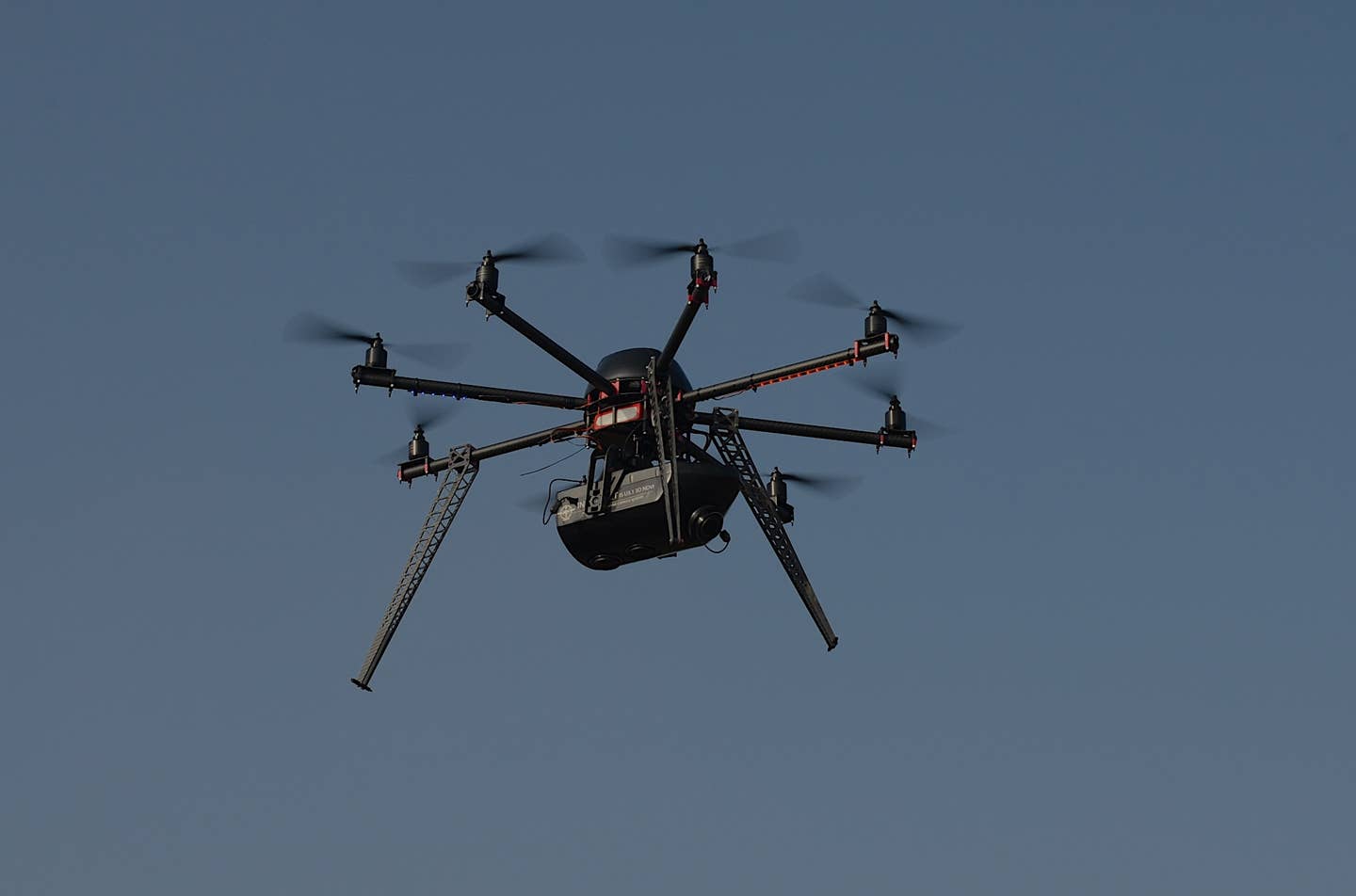The Mask Muddle
Southwest CEO Gary Kelly floated a trial balloon suggesting masks on airliners don’t do much. The balloon crumped, but he’s probably right.

Credit: Dave Whamond, Cagle Cartoons
Big shout-out here to Southwest Airlines CEO Gary Kelly for clarifying for me why I’m not flying on his airline. Or any other. Kelly had to walk back a statement he made last week in a congressional hearing that masks on airliners don’t add much to passenger or crew safety. To be fair, he had been asked if passengers would ever get on airplanes again without being required to wear masks. (Veering over to the wild side here, let me answer that by saying yes, of course they will.)
It didn’t help that Kelly later reported testing positive for COVID-19, but he later said his statement left the confused impression that he opposed masking. “The majority of our employees and customers have felt it has been an important layer of protection, and I certainly agree with that,” Kelly said later. I actually think he was launching a trial balloon and the fact it got so quickly torched kind of shows where people are on this issue.
Perish the thought that we have, you know, actual data to support Kelly’s statement, but I think he’s probably right. If what the industry says about filtered ventilation in airline cabins is true, then masks probably don’t offer meaningful risk reduction. But what does that even mean. “Not adding much” is not the same as adding nothing, so, logically masks may provide minimal and even moderate protection against infection. But how the hell would you know? What needs to happen is for some bright-eyed graduate epidemiologist to build a surveillance experiment to track this down. My college elective was Chinese history, so I don’t know if this is a doable thing, but I suspect it is.
Meanwhile, I’m not flying on airliners. And masking is the reason. It’s not ideological for me nor necessarily scientific, either. Nor risk based. My thought experiment after Kelly’s statement was that the quid is not worth the quo. I don’t mind wearing masks, but I don’t like it, either. Don’t like packing and carrying them, minding them, changing them or hauling around tubes of hand sanitizer. I’ve read the meta studies on masking and accept that it’s a weak to moderate mitigation, but a mitigation nonetheless. I’ll mask up in crowds, sometimes in stores or where I’m asked. Mostly I avoid those places so that’s the dual benefit of masks; if I don’t go where they’re needed, I’ve all but zeroed the risk. I don’t like mandates much—even for airliners—but I like laws against mandates even less.
Regardless of your view on masking, we’ve constructed a kind of trip wire here. Right now, at least some of the rowdy behavior on airliners is due to mask mandates. Some people don’t accept that they should have to wear masks and they’re going to act up to demonstrate that. If they act up enough to provoke violence, such people belong in jail. Period. Being a flight attendant shouldn’t be a combat assignment. I might not like wearing a mask, but there’s zero chance I’ll get my panties twisted about it.
Sometime in the not-too-distant future, the mask mandate will be lifted. Then Phase Two of the games begin because it will, of course, become optional. My guess is, depending on COVID-19 prevalence, 60 or 70 percent of passengers will still use masks, setting up a natural tension between the masks and masks nots. I’m not far enough along the continuum to decide what I’ll do then. Start flying again with or without a mask? Not fly at all? Haven’t a clue.
If I look at these risks numerically, they’re quite low. Here in Florida, test positivity has been low for months, although it’s increasing. Other states—even with ones with high vaccination rates and mask mandates—are actually higher. My neighbor just returned from Hawaii where masking is close to universal and vaccination is required for entering the state. Hawaii’s current COVID-19 incidence is twice Florida’s rate, although both are low. For this reason, at least for now, I wouldn’t be nervous getting on an airliner unmasked.
Lost in all this is this fact: Airliners are the single most effective disease vector in the history of civilization. They’re fast, they go everywhere and we haven’t figured out what to do about it. We did once. The original SARS outbreak in 2003 was identified and rapidly contained thanks to broad international cooperation. Passenger flights doubled in the period between then and the SARS-CoV-2 outbreak. The next pandemic might make COVID-19 look like the mild flu it definitely is not.
This is a challenge that aviation shows no sign of being ready to confront. And on that cheery note, I have nothing left other than to say Merry Christmas. The next one will be maskless. I'm sure of it.






